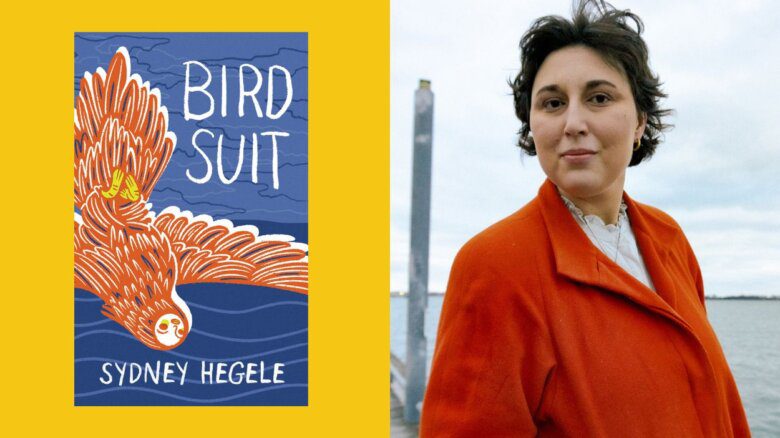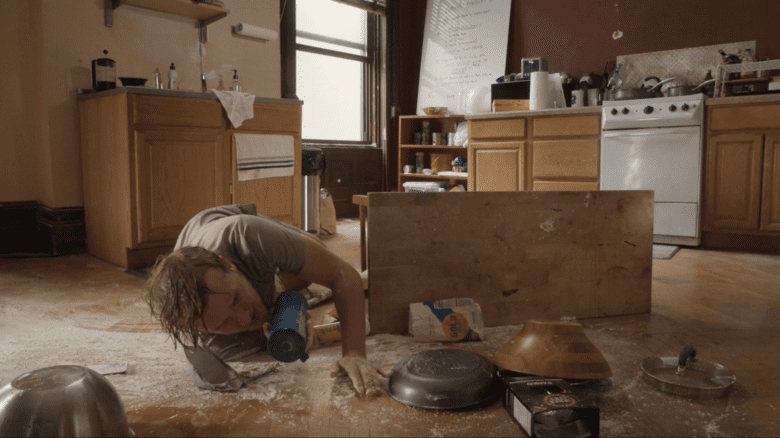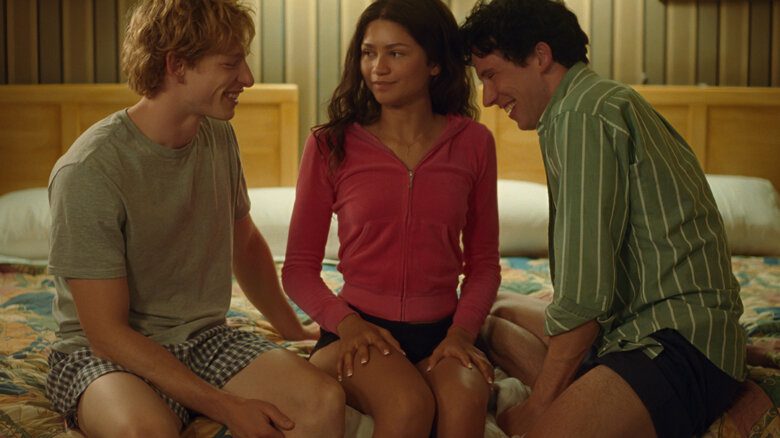In the 1940s and ’50s, Billy Tipton rose to fame in the United States as a talented jazz musician. He toured across the country, even playing with greats like Duke Ellington. Eventually, Tipton settled down with his fifth wife and quietly lived out the rest of his life as they raised several adopted children. Upon his death in 1989, Tipton was outed as a trans man and his story became fodder for tabloids and the talk show circuit. He was largely referred to in mainstream media as an ambitious woman who’d been “fooling” everyone around him—audiences, fellow musicians, his wives—in order to advance his music career. In their new documentary No Ordinary Man, co-directors Aisling Chin-Yee and Chase Joynt along with writer Amos Mac revisit Tipton’s story through a trans lens. Prior to the documentary’s world premiere at the Toronto International Film Festival, I spoke with the filmmakers about Tipton’s story, representation on screen and the importance of trans histories.
What drew you to Billy Tipton as a documentary subject?
Chase Joynt: We both recognized Tipton as a part of our early learnings about transmasculinity. His story has remained relevant as we continue to think about the slippery boundaries between identity categories and how we remember historical subjects. Tipton spent his musical career identifying as a man, and that didn’t change after he settled down and adopted kids. He was outed after his death, and the idea that he had been “concealing” his gender to his partners and to the wider world became a huge scandal. Until now, the mainstream has largely controlled his narrative through talk shows and tabloids. Amos Mac: I grew up seeing talk show hosts like Ricki Lake, Sally Jessy [Raphael] and even Oprah basically bring on gender nonconforming people to be exploited. That’s also what happened with Billy Tipton: I saw his wife and his kids being prodded with inappropriate questions. We wanted to tell his story, but we wanted to tell it through other trans voices.
My girlfriend and I watched the documentary together and during the scenes that feature talk show footage, we were looking at each other horrified like, “This is so cringe.”
Joynt: During the edit we asked ourselves how much talk show footage was actually required to prove a point. Like, is there a kind of violence that we enact by throwing it out into the public again? One thing I hope reads in our project is that talk shows were doing double duty, especially in the late 1980s and early ’90s. They were exploitative, but for people in our generation—people in their late 30s and early 40s—it was the first time we got to see people who were somewhat like ourselves. There was a bit of an aha-moment. Like, “That could be someone like me.”
Why did you decide to structure the film as though it were a casting call?
Mac: There’s no video footage of Tipton, just pictures and limited audio. We don’t know how he walks. We don’t know how he moves his body. That got us wondering: How would a trans actor portray him today? There was no right or wrong answer. We wanted to give trans actors a chance to tell his story however it most made sense to them.
What does it mean for you to be able to finally tell Tipton’s story through a trans lens?
Joynt: We’re not living amid a plethora of film texts about trans masculinity. So when I think about the documentary and its relationship to a kind of trans method, I think about it as a project about the politics of recognition. You see moments of connection between the participants. When I got [actor] Marquise Vilson’s casting tape, I literally leapt out of my seat in excitement thinking about what it could mean to be in conversation with him about trans masculine history. With Vilson’s readings we also got to think out loud with him about how stories about working-class whiteness have always existed in very close proximity to Black cultural expression. To tell a story about gender is to tell a story about race, is to tell a story about class. How can we always be expanding and contracting and thinking with all axes of identification?
Tipton’s son, Billy Tipton Jr., is one of the central characters in the documentary, and it’s obvious his conception of his father changes throughout the film. One of the most striking moments is when you tell him that you’re trans. What was it like to be in that moment?
Co-director Chase Joynt
Joynt: My outing myself to Billy Jr. in that moment was an exchange of generosity. As an interviewer, I actually didn’t see a way forward without meeting him in that space. I understood clearly that he wants to protect his dad’s legacy, even though he is a bit apprehensive around transness. The way he understands transness is through the machine of the talk shows and tabloids; after that disclosure, we witnessed a wild opening up from Billy Jr. He realized his father’s story could be told through a completely different lens. Mac: I felt a bit of panic because I didn’t know what reaction to expect from Billy Jr. He had some questions… There were definitely some questions [laughs]. But none of them were out of bounds for me—they were personal, but by that point we’d asked him a lot of personal questions, too.
Earlier on you alluded to how slippery the boundaries between identity categories can be, especially when we’re looking back on historical figures who never “came out” using their own terminology. As documentarians, how did you navigate representing someone without necessarily knowing how that person would have wanted to be identified?
Joynt: I think there’s something really valuable in foregrounding what we don’t know. The language of “transsexuality” did not exist in the ’40s and ’50s when Tipton was gigging in the southern United States. And in the ’80s, when Tipton’s story was in the tabloids, the word “transsexual” was most readily associated with transfeminine people and had a very particular shape and meaning. We made this historical context explicit throughout the documentary. Mac: Geez, you’re so smart. I always love listening to Chase’s answers. Joynt: Oh, we’re getting emotional. Sorry, Ziya, we’re going to get off this call and text each other about our feelings.
Don’t ever apologize for Trans Feelings. Let’s wrap on a mushy note, then: Why is it important for trans folks to have access to our history?
Writer Amos Mac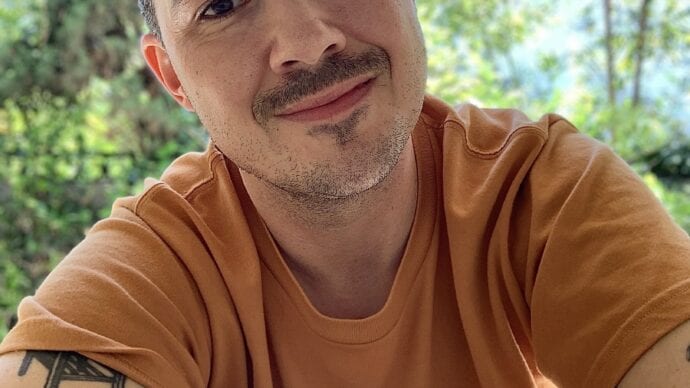
Mac: Growing up, it would have been mind blowing and comforting to see Billy Tipton’s story in a history book. It’s important to know where we came from. I don’t want to know the history I learned in American public school because it was filled with so many lies! I want to know my history. I wouldn’t be where I am today as a trans person if it weren’t for the people who came before me and did the work. Joynt: There’s also the recognition that history is not stable. History is born through the repetition of certain stories by people in power. Part of the way I think we’re trying to engage history in the film itself is to put our understanding of transmasculine history together. So we had Jamison Green, a formative trans activist interacting with Amos, who is a contemporary trans culture-maker of huge significance. Those kinds of connections that can be, you know, geeky for those who know the most about transmasculine history and newly important to those who might never have encountered either person or their work before. That, to me, is the richness and complexity of a project like ours. No Ordinary Man is streaming at the Toronto International Film Festival until Sept. 20.
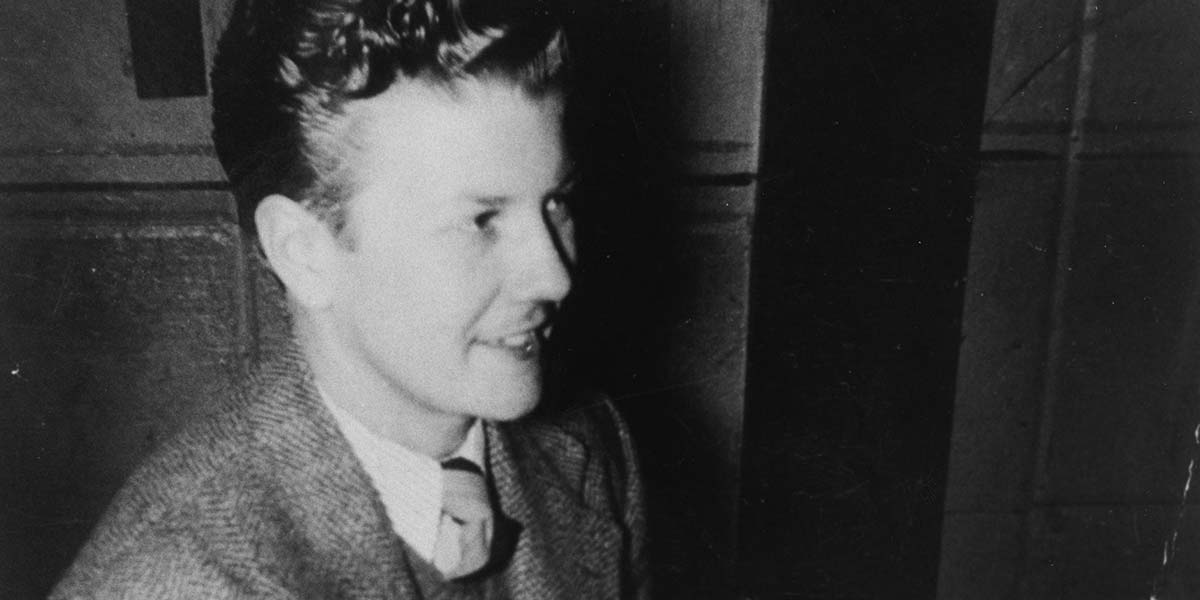

 Why you can trust Xtra
Why you can trust Xtra